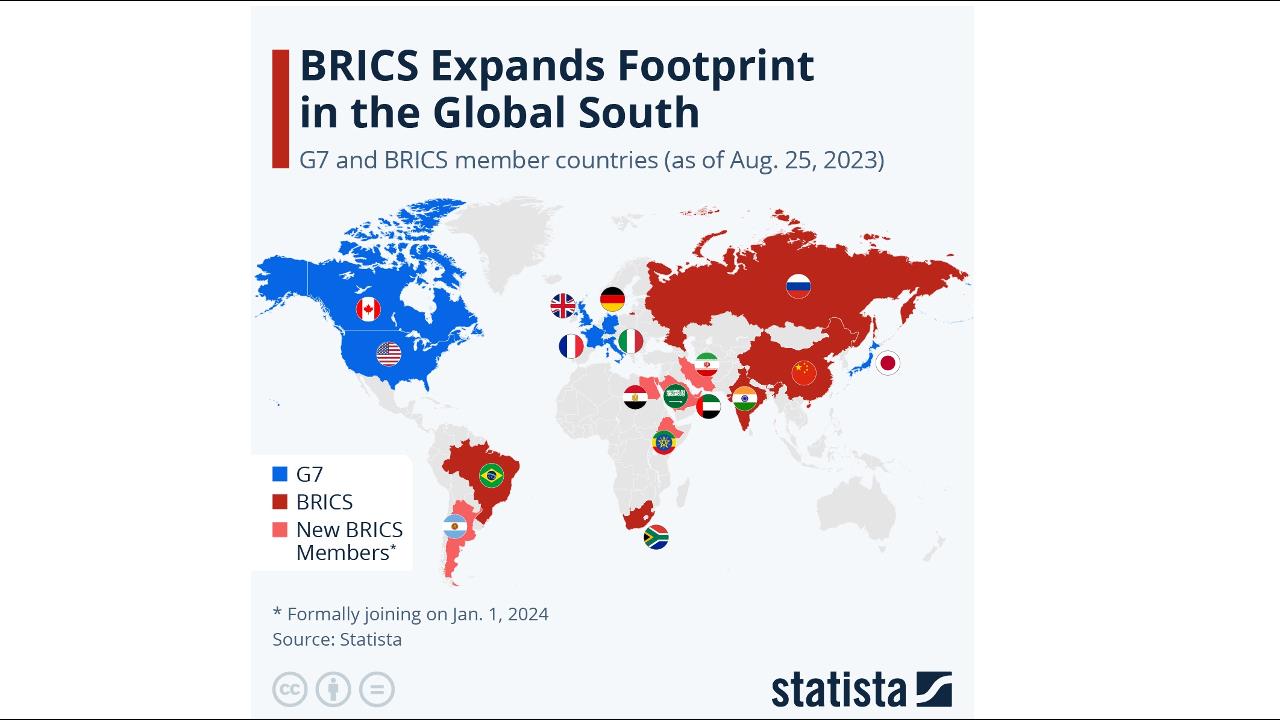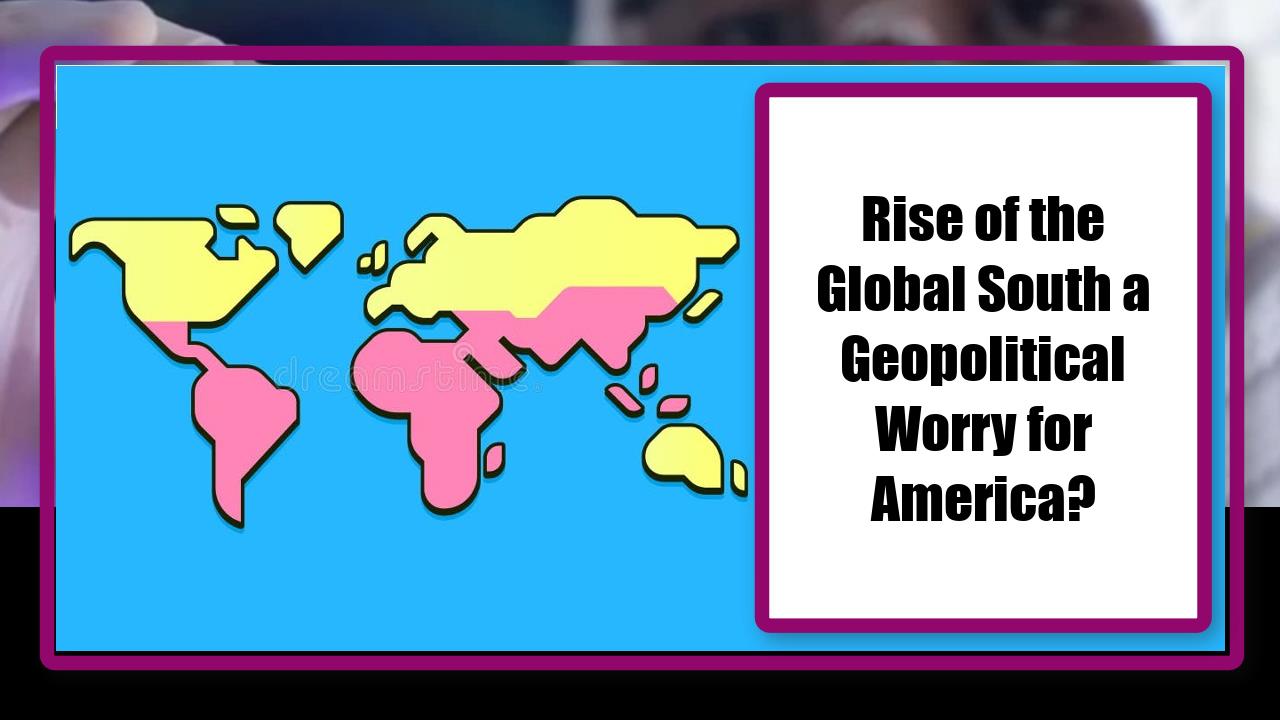Video:
Take our online poll:
AI Analysis:
The term "Global South" typically refers to countries that are less economically developed, primarily located in the Southern Hemisphere. The reasons for more countries aligning or being categorized within the Global South can include several factors:
1) Economic Development and Classification: As the global economy evolves, some countries that were previously considered developing or emerging economies are gaining economic strength, contributing to their reclassification within the Global South.
2) Shifts in Global Power Dynamics: There has been a gradual shift in global power dynamics, with emerging economies in regions like Asia, Latin America, and Africa gaining prominence. These countries, with growing economic influence, are often associated with the Global South.
3) Economic and Trade Alliances: Many countries within the Global South are increasingly forming economic and trade alliances among themselves. These alliances aim to foster economic growth, cooperation, and solidarity, thereby aligning more countries within the Global South framework.
4) Common Challenges and Goals: Countries in the Global South often share common challenges such as poverty, inequality, and issues related to development, leading to collaboration and shared initiatives to address these issues collectively.
5) Globalization and Connectivity: Globalization has facilitated increased connectivity and collaboration among countries across regions. Shared experiences, challenges, and aspirations have led to a sense of shared identity and solidarity among many nations in the Global South.
6) Advocacy and Representation: There has been a growing emphasis on representation and advocacy for the interests of countries in the Global South in global forums, such as the United Nations, to address issues of development, climate change, trade, and human rights.
7) Shifts in Geopolitical Alliances: Changes in geopolitical alliances and international relations have led some countries to align more closely with others in the Global South, especially in response to changing power dynamics and evolving global priorities.
These factors contribute to a greater number of countries being associated with or aligning themselves within the framework of the Global South, emphasizing shared challenges, aspirations, and collaborations among less economically developed nations across various regions.
Chart:

References:


Comments